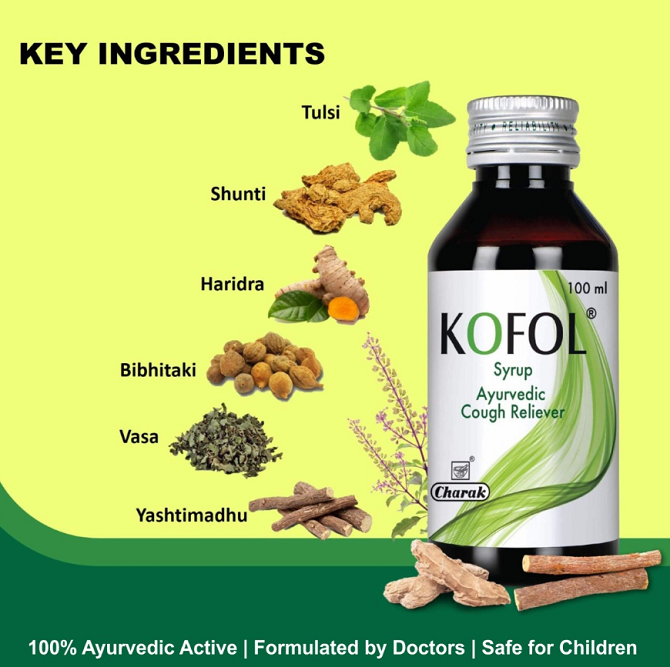
A cough is a protective, natural reflex intended to keep the airway clear. It is a natural response generated by the body to clear the excess secretions from the lungs and trachea. The urge to cough is a normal in-built reflex mechanism of your central nervous system like the reflex to sneeze, swallow or yawn. It simply means coughing is normally a life-saving mechanism that is regulated by the higher centers of the brain.
A cough can be triggered by both non-infectious causes, such as smoke, dust, and pollen, or by infectious agents, like bacteria and viruses. When the nerve endings in your airways become irritated by something you breathe in from the environment—like pollen or dust— the cough reflex kicks in. In this instance, coughing helps you to expel the irritant.
A cough can also expel food that went down the wrong way, or a foreign object from getting into your lungs. It can be voluntary or involuntary as a reflex.
A chronic cough can be extremely debilitating and may signify a more severe health issue. It requires appropriate timely management for quick relief. However, this management depends on the type of cough, its causes, and the duration of the cough.
It is an important piece of health knowledge to be able to identify potential cough ailments so you can treat yourself and your family at home with the right methods. Adopting the correct treatment as soon as possible is also a preventative measure against a cough developing into a chronic condition.
Therefore, it is necessary to identify the cough types and their differences, which will further help to decide the treatment.
Cough, depending on its nature, is broadly classified into –
- Wet Cough
- Dry Cough
What is a Wet Cough?
A cough that expels mucus (also known as phlegm) from your airways is called a productive, wet, or chesty cough because it serves a function. It happens when your respiratory system produces mucus to help flush out an irritant cold or flu pathogen from your airways and lungs.
It may feel and sound like a rattling in your chest. A wet cough might be more noticeable at night when you lie down since the change in position can cause more mucus to shift to the back of your throat.
The respiratory system is lubricated and filtered by mucus, which provides protection to the lungs and tract. So, when the body responds by overproducing mucus, it is typically in response to inflammation, infection, or disease.
Sometimes, a wet cough is also referred to as a chesty cough. Though they are somewhat similar, they are not technically the same. Chesty cough is triggered by excessive mucus in the lungs and lower airways, and you may have difficulty expectorating thick mucus to clear the airway passage.
What are the Causes of Wet Cough?
A wet cough can last a week or two when brought on colds and flu but a cough lasting around eight weeks should be assessed by a doctor as there may be an underlying condition such as:
- Lung conditions and respiratory infections.
- Chronic obstructive pulmonary disease (COPD), is a progressive lung disease.
- Bloody coughs may be a sign of malignancy or chronic inflammatory disease.
- Bronchiectasis increases the risk of lung infection.
What is a Dry Cough?
A cough that does not produce mucus and serves no useful purpose is called a non-productive or dry cough. It can also disrupt much-needed sleep, leaving you exhausted.
Dry cough is caused by upper airway irritation and inflammation. It does not produce mucus because the upper airways do not have as many secretory glands as the lower airways do.
A few dry coughs are momentary and can be brought on by choking, a tickling in the throat, environmental irritants, and smoking. However, a chronic dry cough needs to be remedied by treating the underlying cause.
What are the Causes of Dry Cough?
A persistent dry cough generally develops in response to irritation or inflammation of the airways. It can be caused by several possible issues:
- Throat infections like sinusitis, tonsillitis, and laryngitis.
- Bacterial infections like whooping cough.
- Lung conditions such as asthma.
- Pulmonary fibrosis.
Dry vs Wet Cough: What are the differences?
Knowing the difference between a wet cough and a dry cough is essential for the right treatment protocol. The difference between a dry and wet cough is quite stark when it comes to symptoms:
Mucus Production
- A dry cough does not expel mucus.
- A wet cough is characterized by the presence of mucus in the respiratory tract and lungs.
Associated Cough Symptoms
- A dry cough may occur with other symptoms such as loss of smell or taste, tickling sensation in the throat, or dryness and sensitivity.
- A wet cough can also be accompanied by a runny or blocked nose and fatigue.
Common Causes
- A dry cough is a reflex commonly caused by an irritation in the respiratory tract.
- A wet cough is usually from an infection such as the flu.
Chronic Causes
- A persistent dry cough can be caused due to raised Eosinophil count, tonsillitis, or allergies.
- A persistent wet cough could be a result of acute bronchitis or a more serious condition like pneumonia.
Remedies for a Dry Cough
Having a dry cough can be uncomfortable and disruptive, but luckily there are several remedies that can offer some relief.
- Cough Suppressants
Cough suppressants reduce your dry cough by blocking the cough reflex. This is beneficial if your cough keeps you up at night and relieves pain.
- Throat Relief
Menthol and eucalyptus lozenges or cough syrup have an effective cooling action that calms inflamed tissue and eases cough reflexes.
- Home Remedies
Soup, tea, or other nutritious warm liquids instantly soothes scratchy, sore throats. Drink warm water to keep yourself hydrated, which aids the healing process. Remove or avoid any triggers that exacerbate the cough.
Remedies for a Wet Cough
For wet coughs, it is best to completely expel any mucus that the body is producing. There are two methods for wet cough treatment, namely medically or naturally.
- Cough Expectorants
Cough syrup expectorants are better for wet coughs than suppressants as they loosen thin mucus in the airways so that it can be coughed up.
- Home Remedies
Honey has anti-inflammatory properties that reduce inflammation, break up mucus, and soothe sore throats. A combination of Honey and Turmeric along with some fresh ginger juice works wonders in productive cough.
Steam inhalation soothes irritated tissues, loosens mucus, and eases coughing. Adding a drop of mint can enhance the benefits.
Gargling salt and turmeric in warm water helps to reduce phlegm and mucus in the back of the throat which can lessen the need to cough.
Along with all these remedies, the best defense against all types of coughs is a strong immune system that is obtained through a healthy diet, regular exercise, sufficient sleep, and adequate vitamin and mineral intake.
Ayurveda, an age-old Vedic life science, has described several immune-modulator herbs that not only boost your immune system but also keep respiratory illnesses at bay.
Why Choose Kofol Cough Syrup for Sore Throat and Cough Relief?
Kofol Syrup by Vedistry, is an all-herbal cough relief syrup to help ease a sore throat and other respiratory issues caused due to bronchial asthma and gastric acid reflux. It is enriched with powerful herbs and medicinal plants that have anti-inflammatory and antiseptic properties. It is an ayurvedic cough relief and sore throat remedy with clinically tested herbs.

Kofol Syrup contains potent herbs like Shunthi, Tulsi, Vasa and more, which are anti-inflammatory in nature. They offer a cooling effect to effectively heal and soothe your throat and give relief from the pain caused by excessive coughing. This ayurvedic cough syrup works wonders on dry, mucosal, and normal cough.
Haridra and Shunthi have antibacterial and anti-inflammatory properties. Yashtimadhu and Vasa help loosen mucus for quick relief from cough. Bibhitaki suppresses the cough reflex. Tulsi has immunomodulating properties. This ayurvedic cough syrup has a non-drowsy formula and can help provide relief from dry and wet coughs.
Key Benefits:
- Kofol Cough Syrup may aid in reducing inflammation caused by intense coughing.
- It might assist in relieving sore throat.
- It is beneficial in both dry and wet cough and provides relief from cough of varied causes.